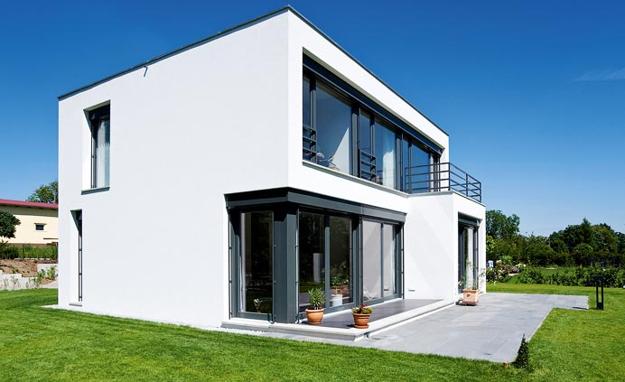Urban living often comes with unique challenges: limited space, higher energy demands, and fewer opportunities for sustainable urban living. Yet, city dwellers worldwide are finding creative and impactful ways to transform their apartments and small homes into eco-friendly havens. By embracing innovative solutions such as vertical gardens, energy-efficient appliances, smart home systems, and even solar panel installations when feasible, urban residents are proving that sustainable urban living is possible despite the constraints.
Green space with vertical gardens
For urban residents, space is often the biggest challenge to creating an eco-friendly home. Traditional gardens are simply not an option in high-rise apartments or densely packed neighborhoods. Vertical gardens offer a practical and stylish solution, allowing residents to introduce greenery without sacrificing valuable floor space.
Vertical gardens involve growing plants upwards instead of outwards, using walls, shelves, or modular structures to house greenery. This allows city dwellers to enjoy the benefits of plants and contributes to a healthier living environment as well. Plants in a vertical garden can help purify the air, regulate indoor temperatures, and improve humidity levels. For those focused on sustainability, choosing edible plants such as herbs, leafy greens, or small vegetables can reduce reliance on store-bought produce and cut down on packaging waste.
The flexibility of vertical gardens makes them ideal for urban spaces. Whether it’s a small balcony, kitchen wall, or a living room corner, vertical gardens can be customized to fit any space and budget. They represent a simple yet effective way for city dwellers to reconnect with nature and make their homes greener.
Solar energy in urban environments
While solar panel installation is often associated with suburban or rural homes, city dwellers are increasingly exploring ways to harness solar energy, even in small apartments. Rooftop solar panels, where permitted, provide a renewable source of energy that reduces reliance on non-renewable power grids. In cities with shared housing or limited access to private rooftops, residents are finding alternatives such as solar subscriptions or community solar programs.
Portable solar panels and solar-powered devices also offer practical solutions for apartments. Small solar kits can be used to charge electronics, power lighting, or run energy-efficient appliances, contributing to significant energy savings over time. These tools allow urban residents to take advantage of renewable energy without major renovations or space requirements.
While installing solar panels in urban areas may involve challenges like zoning regulations, weather, or shared ownership, the growing accessibility of solar technology is making it easier for city dwellers to incorporate renewable energy into their eco-friendly lifestyles.
Energy-efficient appliances

Energy-efficient appliances is the most effective way for urban residents to reduce their environmental impact. Household appliances like refrigerators, washing machines, and heating or cooling systems account for a significant portion of energy consumption. Upgrading to energy-efficient models can drastically reduce electricity usage while saving money in the long run.
Modern energy-efficient appliances are designed to use less power without compromising performance. For instance, refrigerators now come with advanced insulation and compressor technologies that reduce energy demands. Similarly, washing machines with high-efficiency settings use less water and energy, which is particularly important for city dwellers who may face high utility costs.
When choosing energy-efficient appliances, urban residents can look for certifications like Energy Star labels, which guarantee that the product meets specific energy-saving criteria. In compact living spaces, smaller appliances that consume less energy can also contribute to sustainability efforts. By making mindful choices, city dwellers can lower their carbon footprint and promote a sustainable urban living.
Smart home systems for sustainable urban living

Smart home systems are becoming increasingly popular among urban residents looking to optimize energy usage and reduce waste. These systems include tools like smart thermostats, automated lighting, and energy-monitoring devices that help residents track and control their energy consumption in real time.
Smart thermostats, for example, allow users to program heating and cooling schedules based on their routines, ensuring that energy is not wasted when no one is home. Automated lighting systems with motion sensors or timers further reduce energy usage by turning lights off when not needed. Energy monitoring devices provide insights into which appliances or systems are consuming the most power, helping residents identify opportunities to save energy. The convenience of smart home systems makes them an ideal solution for urban spaces.
Reduce waste through sustainable practices
Sustainability in urban living extends beyond energy use; it also involves reducing waste and making environmentally conscious choices. City dwellers are finding innovative ways to limit their waste production, such as adopting composting systems for food scraps, reducing single-use plastics, and upcycling furniture or household items.
Waste composting, for example, may seem challenging in small urban spaces, but compact compost bins designed for apartments allow residents to recycle organic waste into nutrient-rich compost. This can be used for indoor plants or vertical gardens, creating a closed-loop system within the home.
Additionally, upcycling and repurposing items can help reduce consumption and prevent unnecessary waste. By choosing sustainable materials for home decor and furniture, residents can minimize their environmental impact while creating personalized and eco-friendly living spaces.
Challenges of sustainable urban living
Sustainable urban living in city environments may come with unique challenges. However, residents are reducing their environmental footprint while overcoming space and resource limitations by utilizing solutions like vertical gardens, solar energy adoption, energy-efficient appliances, and smart home systems. By embracing these creative and accessible practices, urban residents are proving that sustainable urban living is achievable no matter the size of the home or the obstacles in the way. Small changes, when combined, can make a significant impact, allowing city dwellers to contribute to a greener and healthier future.
Source link
ecoideaz www.ecoideaz.com


